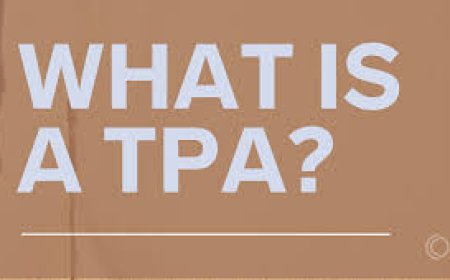Essential Business Compliance: Company Name Check, Network Marketing, and FSSAI for Flour Mills ?
Check Company Name MCA
Before You Register: Check Company Name MCA
The first step in formalizing any business structure in India, especially a private limited company or an LLP, is ensuring the availability of your desired company name. This crucial preliminary step involves performing aCheck Company Name MCA(Ministry of Corporate Affairs). A unique and distinctive name is not just a matter of branding; it's a legal requirement. The MCA guidelines mandate that a proposed company name must not be identical or too similar to an existing company or LLP name, or a registered trademark.
Failure to conduct a proper name availability search can lead to significant delays and even rejection of your incorporation application. The MCA portal provides a free public search facility where you can enter your proposed names and check for existing registrations. It's advisable to have a few alternative names ready, as the approval process can be competitive, and your first choice might already be taken or deemed too similar. Beyond direct identical matches, the MCA also considers phonetic similarities and names that suggest an illegal activity or association with government bodies without proper authorization.
Once you have identified a few unique names, you can apply for name reservation through the RUN (Reserve Unique Name) service on the MCA portal. This reservation is typically valid for 20 days for a new company and 60 days for a change of name for an existing company or LLP, giving you time to prepare other incorporation documents. Taxlegit assists businesses with theirCheck Company Name MCAprocess, leveraging their expertise to suggest viable names and efficiently handle the name reservation application, setting a strong foundation for your company's registration.
Understanding the Landscape: Network Marketing Companies India
The business landscape in India is diverse, and among the various models, network marketing, also known as multi-level marketing (MLM), holds a significant presence.Network marketing companies Indiaoperate on a direct selling model where independent distributors earn income not only from selling products directly to consumers but also from recruiting other distributors and earning a percentage of their sales. While this model offers flexibility and low entry barriers, it's crucial to understand the regulatory framework and the reputation of companies operating within this space.
In India, the direct selling industry, including network marketing, is governed by the Consumer Protection (Direct Selling) Rules, 2021, under the Consumer Protection Act, 2019. These rules aim to protect consumers and direct sellers, differentiate legitimate direct selling schemes from pyramid schemes, and ensure ethical business practices. Key provisions include mandatory registration of direct selling entities, prohibition of pyramid schemes and money circulation schemes, clear disclosure requirements regarding remuneration, and grievance redressal mechanisms.
Prospective direct sellers or individuals interested in associating withNetwork marketing companies Indiashould always verify the company's compliance with these rules, its product quality, and its compensation plan. A legitimate network marketing company focuses on selling genuine products or services and offers a fair compensation structure based on sales, not merely recruitment. Due diligence is paramount to avoid falling prey to fraudulent schemes. Taxlegit can provide guidance on understanding the legal and regulatory aspects of direct selling, helping businesses and individuals navigate this complex sector responsibly.
Ensuring Food Safety: FSSAI License for Flour Mill
For any business involved in the food sector in India, ensuring food safety and compliance with regulatory standards is non-negotiable. This is particularly true for food processing units like flour mills. Obtaining anFSSAI license for flour milloperations is a mandatory requirement under the Food Safety and Standards Act, 2006. The Food Safety and Standards Authority of India (FSSAI) is the primary body responsible for regulating the manufacture, storage, distribution, and sale of food products to ensure their safety and quality for human consumption.
The type of FSSAI license required depends on the scale and turnover of the flour mill. Smaller operations or those with lower annual turnover may qualify for FSSAI Basic Registration, while medium to large-scale flour mills typically need an FSSAI State License or an FSSAI Central License, respectively. The application process involves submitting various documents, including identity and address proofs of the proprietor/partners/directors, proof of premises, business details, and a declaration of food safety management system. The FSSAI conducts inspections to ensure that the flour mill adheres to hygiene, sanitation, and quality control standards.
Possessing a validFSSAI license for flour millis not just a legal obligation; it also builds consumer trust and enhances the credibility of your product in the market. It signifies that your flour mill operates under strict food safety guidelines, minimizing the risk of contamination and ensuring the delivery of safe and wholesome products to consumers. Renewing the license periodically is also crucial to maintain continuous compliance. Taxlegit specializes in assisting food business operators, including flour mills, in obtaining and renewing their FSSAI licenses, ensuring they meet all regulatory requirements and operate seamlessly within the legal framework.
Taxlegit Services: Your Partner in Business Compliance
Company Registration
-
Private Limited Company:Seamless incorporation for growth-oriented businesses.
-
Limited Liability Partnership (LLP):Flexible structure with limited liability for professionals.
-
One Person Company (OPC):Ideal for individual entrepreneurs seeking corporate benefits.
-
Sole Proprietorship:Simple and quick setup for small ventures.
-
Public Limited Company:Comprehensive support for publicly tradable entities.
-
Section 8 Company:Registration for non-profit organizations.
Government Registrations & Licenses
-
GST Registration:Hassle-free Goods and Services Tax registration and compliance.
-
FSSAI Registration/License:Essential for all food business operators.
-
MSME/Udyam Registration:Benefits for Micro, Small, and Medium Enterprises.
-
Import-Export Code (IEC):Mandatory for international trade.
-
Shop & Establishment Act License:Required for commercial establishments.
-
Professional Tax Registration:Compliance with state-specific professional tax laws.
Intellectual Property
-
Trademark Registration:Protecting your brand name, logo, and slogan.
-
Copyright Registration:Safeguarding original literary, artistic, and dramatic works.
-
Patent Registration:Securing exclusive rights for inventions.
-
Design Registration:Protecting unique industrial designs.
-
Trademark Renewal:Ensuring continuous protection for your brand.
Tax Filing & Compliance
-
Income Tax Return (ITR) Filing:For individuals, businesses, and corporates.
-
TDS Return Filing:Timely and accurate Tax Deducted at Source returns.
-
GST Return Filing:Monthly/quarterly GST compliance.
-
ROC Annual Filings:Statutory compliance with the Registrar of Companies.
-
Audit Services:Statutory and internal audits for businesses.
Business Compliance & Advisory
-
Corporate Law Compliance:Adherence to Companies Act and other regulations.
-
Legal Drafting:Agreements, contracts, and other legal documents.
-
Secretarial Services:Maintaining statutory registers and minutes.
-
Business Consultation:Expert advice on legal, tax, and compliance matters.
-
Due Diligence:Comprehensive checks for mergers, acquisitions, and investments.

































